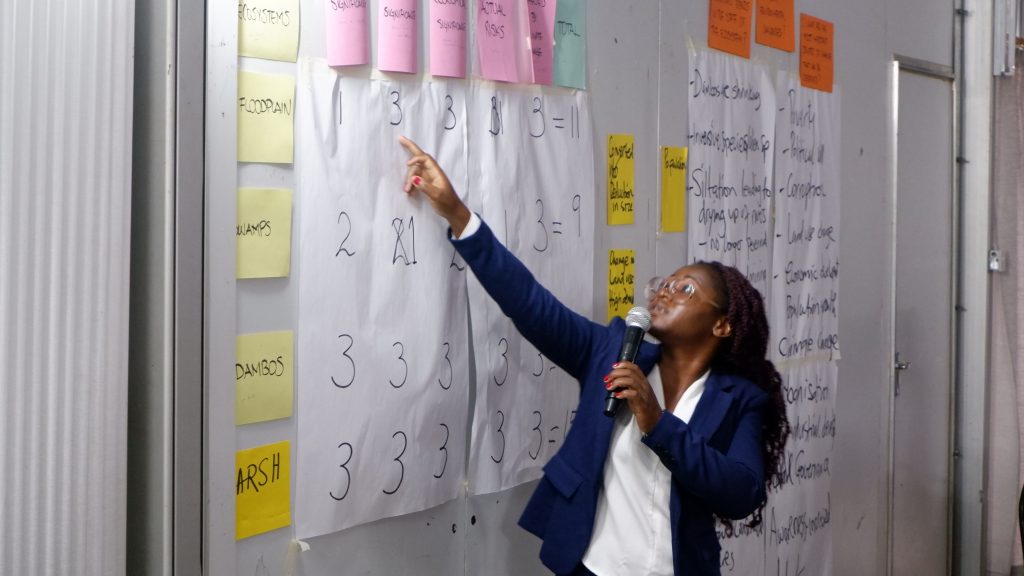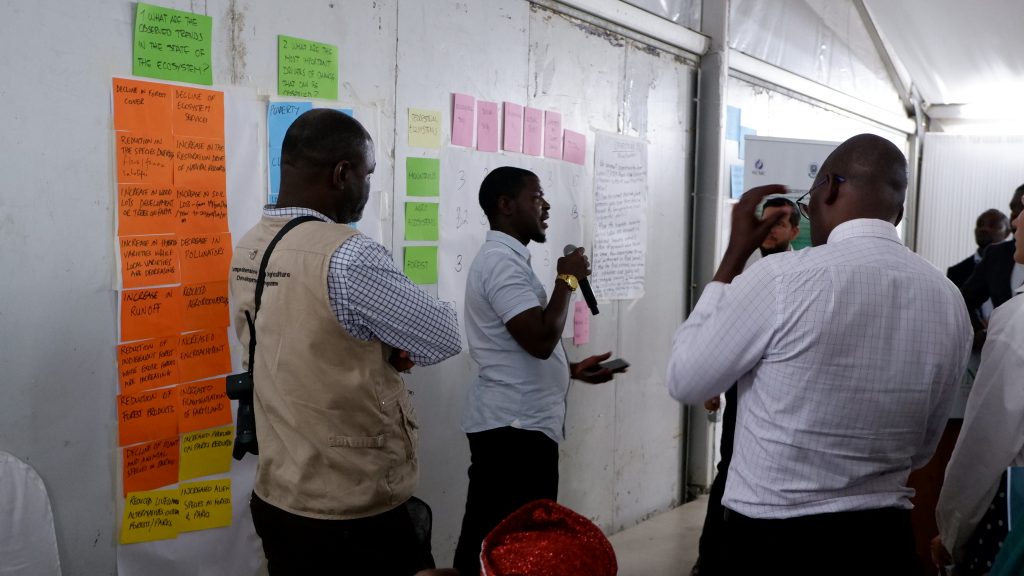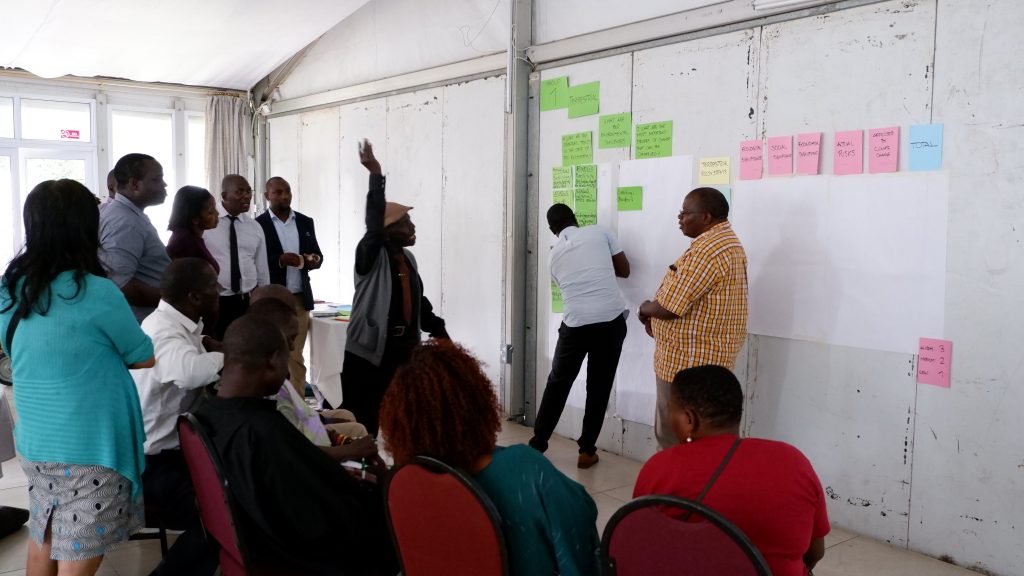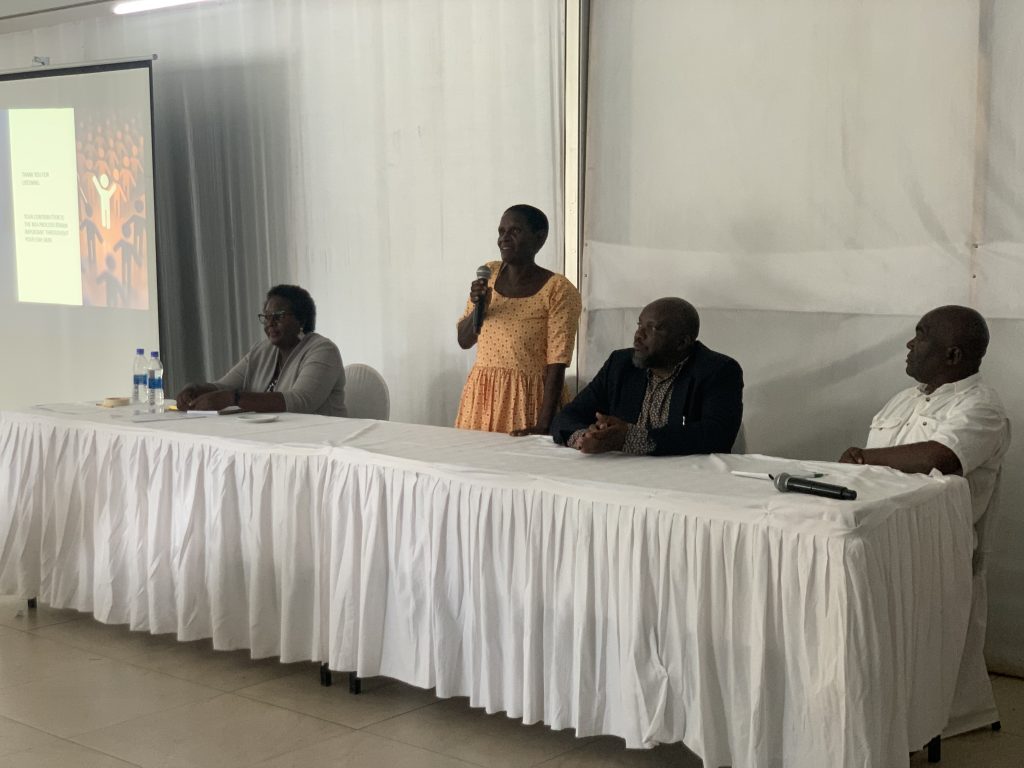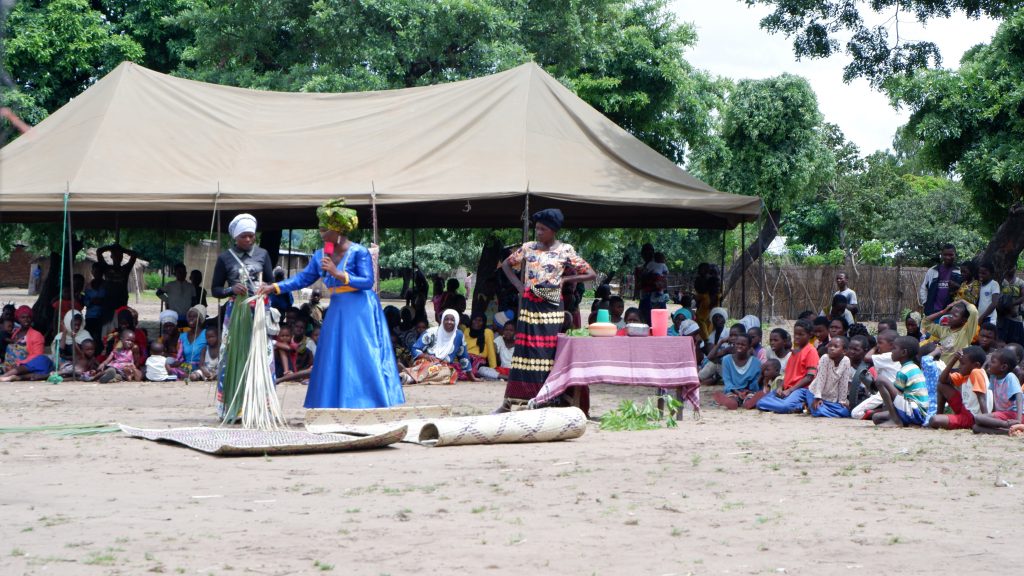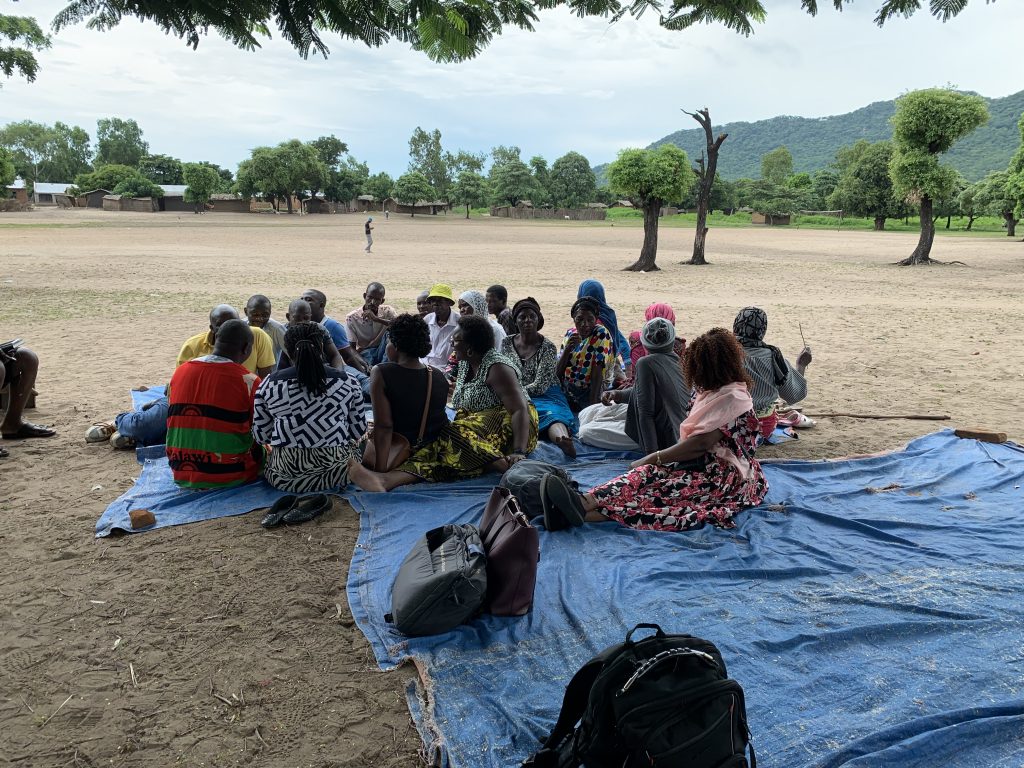Five Insights from Malawi’s National Trialogue for the National Ecosystem Assessment
- News
In March 2023, the Malawi national ecosystem assessment team successfully hosted a first National Trialogue – an event which brought together science, policy and practice communities to provide input to Malawi’s scoping report. The attendees shared a resounding feeling that the Trialogue had provided a platform for fruitful discussions between the assessment authors and a wider range of stakeholders on the intended focus and scope of Malawi’s assessment.
The Trialogue stimulated a rich exchange of knowledge and perspectives on biodiversity and ecosystem services as well as a broader reflection on nature’s benefits for people in Malawi. Malawi’s first Trialogue as part of the national ecosystem assessment process generated some key lessons and experiences, and whilst being mindful that every context is unique, the following reflections aim to guide and inspire other countries looking to use the Trialogue methodology in their assessments.
Enabling conditions for the Trialogue to be meaningful for the assessment
With an overall intention to create a fruitful exchange between national stakeholders representing science, policy and practice communities, including Indigenous and local knowledge (ILK) holders, Malawi’s Trialogue provided the platform to gather inputs from over 70 attendees to discuss and refine the draft key policy questions in preparation for the finalisation of Malawi’s scoping report.
A great deal of logistical planning and coordination was required prior to the Trialogue to ensure its smooth delivery and much careful thought and consideration went into prior stakeholder mapping and developing an agenda that would support constructive dialogue between the stakeholders attending, including ample space for knowledge-sharing and discussion through structured group activities.
Thanks to the careful planning of the Malawi assessment team, there was a good gender balance and representation of youth and elderly amongst the assessment experts and stakeholder groups who attended the Trialogue, which is critical to ensure a diversity of stakeholder knowledge, needs, and perspectives are captured in the assessment.
This Trialogue’s success resulted from the significant planning efforts and remarkable coordination amongst the Malawi assessment team
The key ingredients for successfully planning and coordinating a Trialogue are 1) defining your aims and objectives of hosting a Trialogue, regardless of the assessment stage, you need to have a clear purpose for hosting the Trialogue 2) stakeholder mapping to ensure the inclusive participation of key stakeholders and 3) frequent planning meetings, which are critical for highlighting small logistical details that are easy to overlook but could adversely affect the Trialogue.
Alice Kammwamba, Project Officer for the Malawi National Ecosystem Assessment
Purpose-led agenda of the Trialogue
Keeping in mind the key objective of the Trialogue to discuss and refine the priority policy questions for the Malawi national ecosystem assessment to address, the first and third days of the Trialogue involved a series of group exercises to discuss and deliberate the draft policy questions. Representatives from science, policy and practice communities were divided into mixed groups to encourage an open-minded exchange of knowledge, experiences, and perspectives amongst the assessment experts and the respective stakeholder groups. Throughout the Trialogue, discussions took place in the commonly shared language of Chichewa, which contributed significantly to the meaningful participation of all the stakeholders attending.
On the second day of the Trialogue, a short distance from Trialogue venue in Salima town, the attendees visited the Nsalure village, where the local community is leading efforts to restore the surrounding Navingozi forest. The purpose of the visit was to shed light on and showcase the value and role of local communities and their Indigenous and local knowledge in conservation while providing participants of the Trialogue with a first-hand experience of the customary local governance system that the Navingozi Community Forest Committee use to restore and sustainably conserve the forest.
Strategic moment for the Trialogue to contribute to the national ecosystem assessment
The scoping stage is a critical time to gather input from stakeholders on the aim and scope of the assessment since the scoping report serves as the blueprint for the expert evaluation. Holding a Trialogue at an advanced stage of the scoping phase, as in Malawi’s case, benefitted the assessment team by bringing on board already engaged and new knowledge holders and gathering additional insights from stakeholders about the relevance and suitability of the draft policy questions.
The Trialogue, which was tailored ad hoc to meet the specific aims and objectives set by the Malawi assessment team, was an instrumental tool for helping to develop and refine the scope of the assessment whilst enabling an open-minded and non-judgemental dialogue between all stakeholders in attendance.
Hosting the Trialogue at this moment in the Scoping Stage was important for ensuring that our assessment is being conducted in a transparent and inclusive manner, since this was a critical moment to get input from policy-makers, communities, scientists, and practitioners to assess the relevance of the assessment’s key policy questions before the Scoping Report is sent for validation by the National Biodiversity Platform.
Lilian Chimphepo, National Ecosystem Assessment Co-chair and IPBES National Focal Point
Indigenous and local knowledge holders as key contributors to Malawi’s Trialogue
Malawi’s assessment team recognises the critical role that Indigenous and local knowledge can play in the national ecosystem assessment for conceptualising nature’s diverse values, capturing the biodiversity-related trends that local communities have observed in their surrounding ecosystems, and co-identifying policy recommendations that can better align national policies with local customs, bylaws, and practices of resource governance and enhance biodiversity and ecosystem co-management. Previously as part of the assessment scoping activities, the Malawi team organized a series of framing workshops, community dialogues, and household dialogues with local communities and elders in the Northern, Central and Southern regions of Malawi to co-identify themes of Indigenous and local knowledge to be integrated into the key policy questions and scoping report. These field activities also provided opportunities to communicate the purpose of the national ecosystem assessment and identify “champions” and “knowledge holders” from the local communities who could participate throughout the assessment to ensure the knowledge, perspectives, and worldviews of Malawi’s Indigenous and local knowledge holders are woven into the assessment.
Following these dialogues, for each of the priority ecosystems that Malawi’s assessment will address, a series of ecosystem thematic policy questions were developed that integrated themes and issues identified during the Indigenous and local knowledge scoping activities. In the interest of building continuity with previous discussions with Indigenous and local knowledge holders during the scoping activities (framing workshops and community and household dialogues) the participation of the local champions in the Trialogue was key. The local community representatives from the different regions of Malawi took a leading role throughout the group discussions by contributing their knowledge, experiences, lessons, and ideas to help refine the priority policy questions that Malawi’s national ecosystem will address.
In the past when I was a young girl, natural resources were not managed by the government but by community members who were our forefathers using Indigenous and local knowledge. Science and government only cannot provide the solutions for restoring biodiversity and ecosystem services [rather] we need a combination of all knowledge.
Enet Chatayikla, Treasurer of Matandwe forest reserve, from Nsanje in the south of Malawi
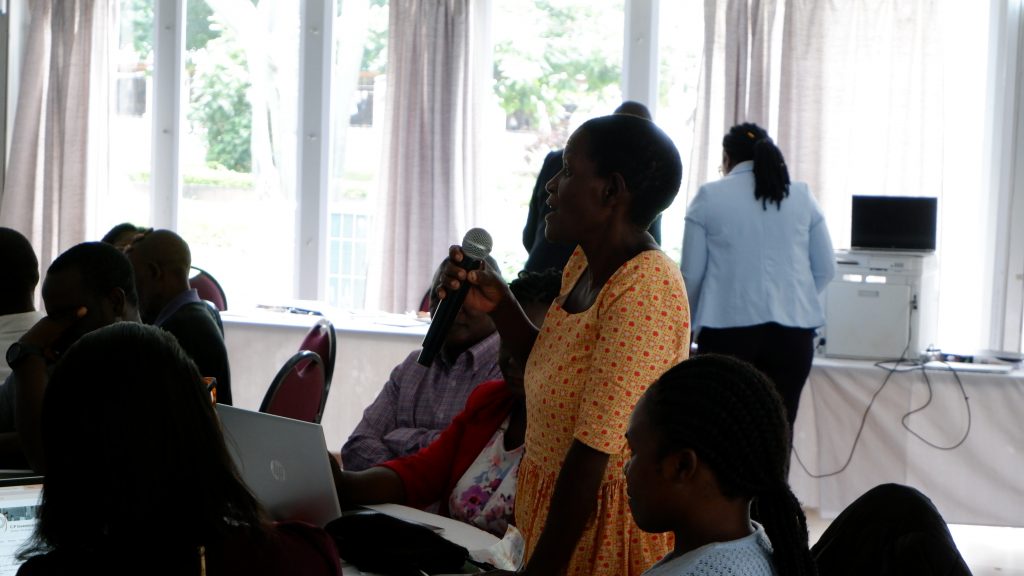
Field visit to learn first-hand from local communities
During the field visit to the Nsalure village, the community narrated how they successfully restored degraded Navingozi forest community ownership, local governance through introduction bylaws and inclusive participation. The community shared their knowledge and conceptualisations regarding the value of the forest and lake ecosystems using poetry, songs, drama and oral accounts. They use these methods to sensitise the local communities on the importance of environmental conservation as well as positively shape people’s behaviours and attitudes towards the environment. These community sensitization methods are not only entertaining but are also well received and understood by local communities across all the age brackets, including children.
The shared knowledge provided critical context and insight on the forest and lake ecosystems not only at the local scale but also highlighted important implications for these ecosystems on a national scale. The role of local communities in the Trialogue demonstrated the important and valuable role of indigenous knowledge in building a stronger evidence base on biodiversity, ecosystems, and its benefits for people.
The field visit provided an understanding of some of the factors/positive drivers encouraging and enabling community-led conservation and restoration initiatives. It also provided insight on the pressures that local communities are observing in the forest and lake ecosystems and how these pressures impact their lives and livelihoods. Participants also learnt about the provisioning and cultural services that the Navingozi community obtain from the forest and lake, such as food, fuel, materials, medicine, eco-tourism, recreation and educational value. The field visit was important for contextualising local communities’ knowledge, roles, and dependencies on ecosystems and provided the basis to further discuss whether Malawi’s draft policy questions adequately capture the Indigenous and local knowledge-related issues that emerged from discussions with the local communities.
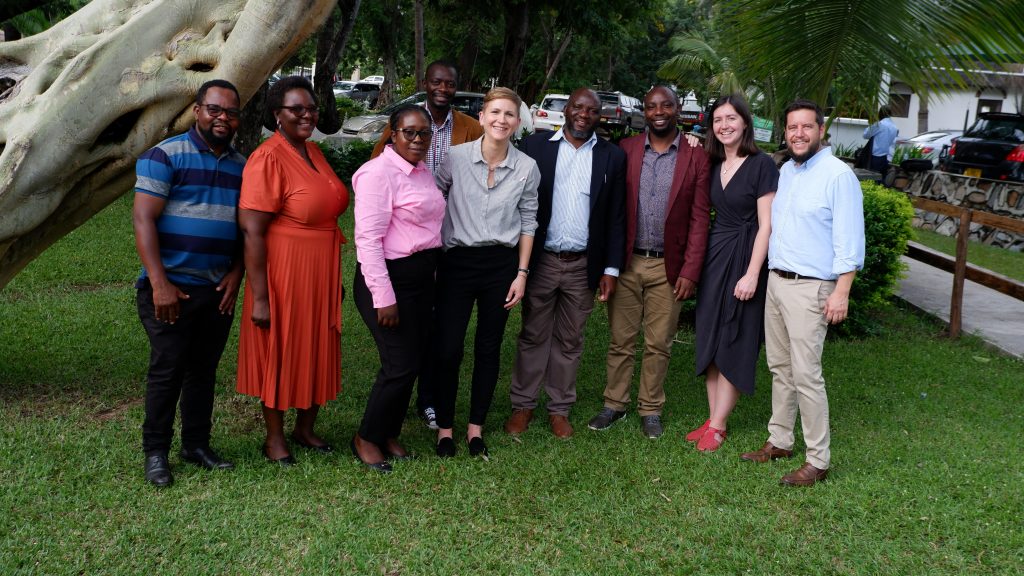
The Trialogue was led and delivered by the Malawi national ecosystem assessment team including Dr John Kazembe (Project Coordinator), Dr Lilian Chimphepo (Assessment Co-chair), Alice Kammwamba (Project Officer), Chrispin Kambani (Assessment Co-chair), and Augustine Mfune (Project Administrator). Support was provided from members of the BES-Net Consortium, which consists of UNDP, UNESCO, and UNEP-WCMC.
Our consortium partner BES-Net has published a digital interactive article dedicated to Malawi’s Trialogue.
